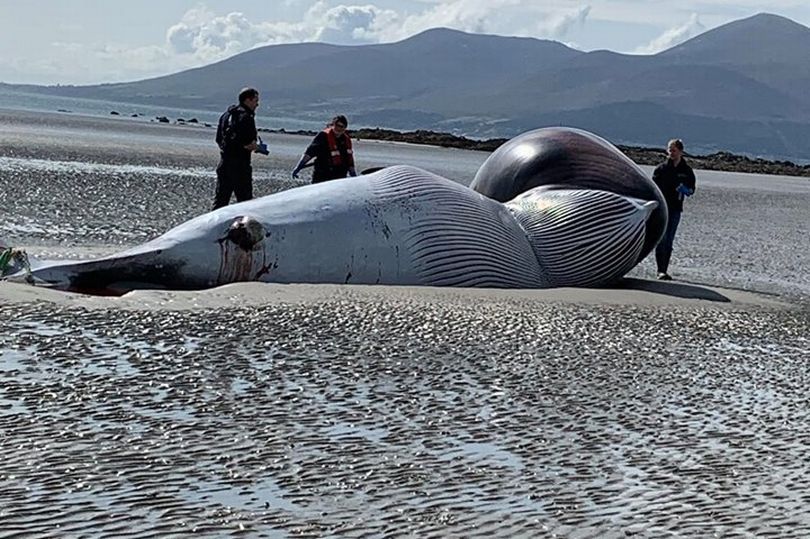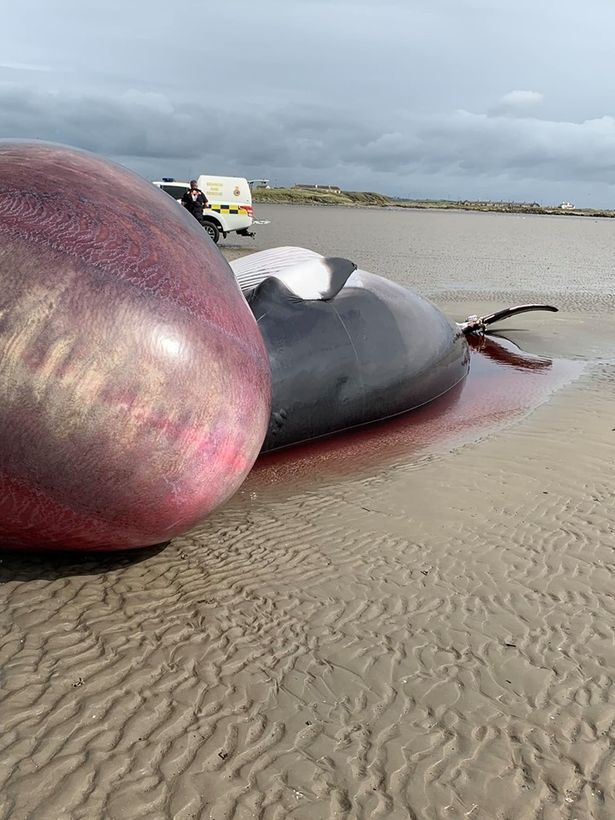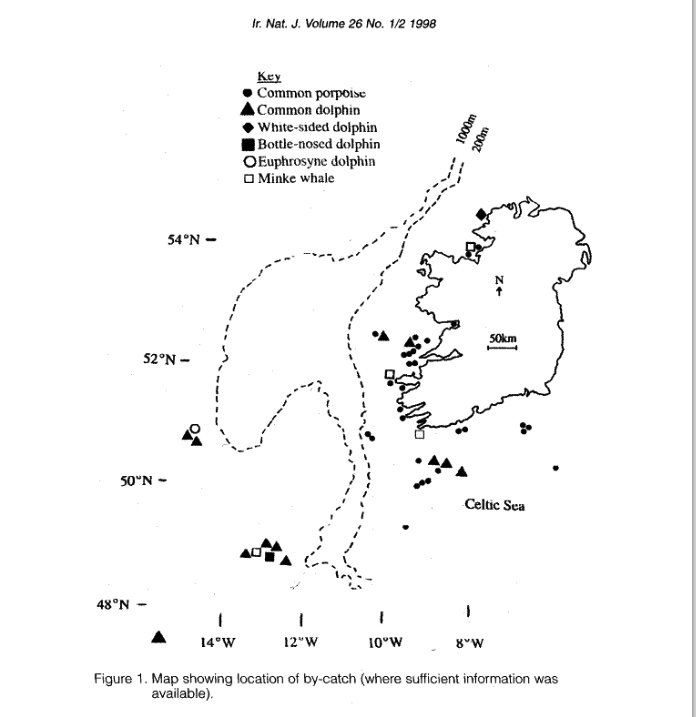Minke whale found entangled at Tyrella Beach in Co. Down, Northern Ireland.
An eight meter minke whale was found dead stranded on Tyrella Beach, Co. Down, after a coastguard found it at around 11 am on Monday the 9th of September, 2019.
Minke whale stranded on Tyrella Beach, Co. Down, Northern Ireland. Photo source: Irish Mirror.
The stranded female minke whale ( Balaenoptera acutorostrata ) was reported to have evidence of fishing gear wrapped around it's peduncle and fluke (tail). While the cause of death of this animal is still unclear, entanglement in fishing gear is just one of many threats for Ireland's smallest and most common whale species. This minke whale was measured and sampled by the Northern Ireland Environmental Agency and we are awaiting an update on the county council's plans to dispose of the carcass. Minke whales are found on all coasts of Ireland but are particularly common along the south coast of Ireland, where mothers and calves are recorded during the summer months. Watch underwater video of minke whale off the Cork coast here: https://youtu.be/24dvAm2nBIU.
Minke whale found stranded in Co. Down, Northern Ireland. Photo source: Irish Mirror.
In Ireland, cetaceans have been reported in four different kinds of fishing gear as unintentional bycatch: including gillnets, (usually bottom set and static gillnets), and drriftnets. Previous records of by caught minke whale reported one caught in buoy ropes and another in a trawl net (Cotton, 1984, as read in Berrow & Rogan, 1998). Amazingly, in October 1991, a single minke whale was caught in a salmon cage in Killybegs. Co. Donegal. Luckily for this whale, it was released alive, (Anon, 1991, as read in Berrow & Rogan, 1998) (Fig 1).
Small cetaceans, seabirds, sharks and seals are also vulnerable to by-catch in specific fisheries. Harbour porpoises ( Phocoena phocoena ) for example, have also been found to be particularly vulnerable to bottom set gillnets, while short-beaked common dolphin ( Delphinus Delphis ) have been found to be more vulnerable to pelagic drift nets for catching tuna species.
Fishing effort and type of fishing gear used varies around the Irish coast and the fisheries in operation depends on the target species and season. Most bottom set gillnets are fished along the south-west coasts of Ireland and in the Celtic Sea for hake and anglerfish, but have since expanded into the Irish Sea and along the coast of Co. Donegal. Drift netting was historically carried out all along the west and north-west coasts of Ireland and offshore the south coast for albacore tuna but has been banned in Ireland since 2007 to allow salmon stocks to recover.
To improve conservation of marine megafauna species in Irish waters O.R.C. has a mobile phone recording tool for citizen science that we encourage anyone with an interest in marine biology to download. The Observers App is available for Android on Google Play or from our website http://www.orcireland.ie
and allows people to report sightings or stranding of marine megafauna (whales, dolphins, seals, seabirds and sharks).
Check out our explainer video: https://www.youtube.com/watch?v=YMiISGeDEyM and download the Observers App here: https://play.google.com/store/apps/details?id=com.app.nazhgpxrfsvacmiqedytlfjcrpdwtmgbwvnoslobzu
Reference
:
Berrow, S. D., and E. Rogan. “Incidental Capture of Cetaceans in Irish Waters.” The Irish Naturalists' Journal
, vol. 26, no. 1/2, 1998, pp. 22–31. JSTOR
, www.jstor.org/stable/25536170.
SHARE THIS ARTICLE
















